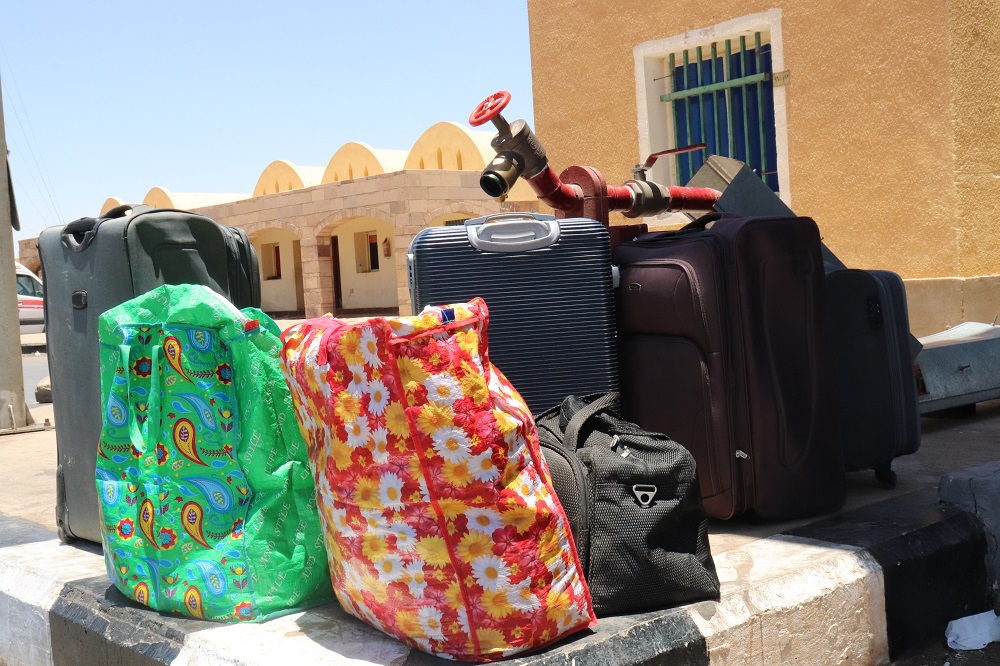 Credit: Yasmeen Ali
Credit: Yasmeen Ali
28 May 2023 – Meeting Nadia (not her real name), one would not guess at first glance that she has just lived through 6 weeks of continuous fear and an intense sense of loss. As with most Sudanese people – who remain inspiringly resilient in the face of numerous health emergencies – Nadia masks her suffering behind a radiant smile and an easygoing attitude.
Although when asked whether everyone she knows is safe she confirms that they are, Nadia’s anguish transpires later in the conversation when she mentions the death of a friend’s wife and brother as armed men opened fire at their car. “I masked my fear and terror with fake optimism for the sake of my younger siblings,” she said, again with a smile, then admitted after a brief pause “but my strongest feeling was absolute despair.”
Has Nadia seen the attacks on health facilities affect anyone she knows? “Yes, I had friends desperately searching and asking for life-saving medications for their sick parents; another friend’s father with heart problems could not reach a hospital and his daughter took him on an 8-hour journey out of Khartoum to get him into the intensive care; pregnant relatives could not go to their regular appointments, and some of them had to give birth at home in horrible conditions; a close friend’s father was not able to get to a dialysis centre due to intense clashes in our neighbourhood and his condition rapidly deteriorated until his daughter was able to get him to the borders then evacuate him to the UK,” Nadia listed, confirming that there are similar stories to be heard in every household in Khartoum.
Aside from the various physical health needs of the people of Sudan today – from treatment of traumatic injuries resulting from the ongoing violence to medications for chronic illnesses and cures for transmittable diseases, to mention but a few – the mental health needs have become equally enormous. “I had and still have a variety of emotions starting with extreme fear, confusion, and rage, as I witnessed the destruction of my beloved Khartoum,” Nadia sighs with a slight pursing of her lips in another faint attempt at smiling.
Nadia remembers the decisive moment when the family realized it was time to leave:“I remember it vividly. It was Monday 24 April. The sound of artillery became too strong and too close to home; the windows were shaking with continuous shooting. While my younger sisters tried to sleep that night, my mother and I sat next to them on the floor. I begged and reasoned with her that the little girls deserved better than this, especially as our food supply was running low and electricity cuts were more and more frequent. We finally made the collective decision to leave to Cairo. Although, just a few days earlier, my uncle who lives with us had found bullets in the kitchen wall, he decided to stay behind saying that this is the home he has known for 40 years, and repeating ‘I won’t leave it, I have God with me as my protector and guide’. One of my toughest moments was leaving him behind.”
When asked if getting on the road out made her feel any better, Nadia said “There was definitely relief but there was also anguish and a feeling of displacement. My tears came when the bus driver announced that we had left Khartoum State and were heading to Halfa.”
While other refugees related their experiences, Nadia became pensive, until she interjected as if snapping back from distant thoughts to the present moment “The first night we spent in Halfa, the silence and calm were so foreign to me… to experience sleep without the fear that any second the ceiling could come crashing down on us. It was the first time I slept for more than three hours in nine days.”
So what about right now, living again in safety? Nadia smiled as she replied “I have this sense of impending doom that will not go away.”





